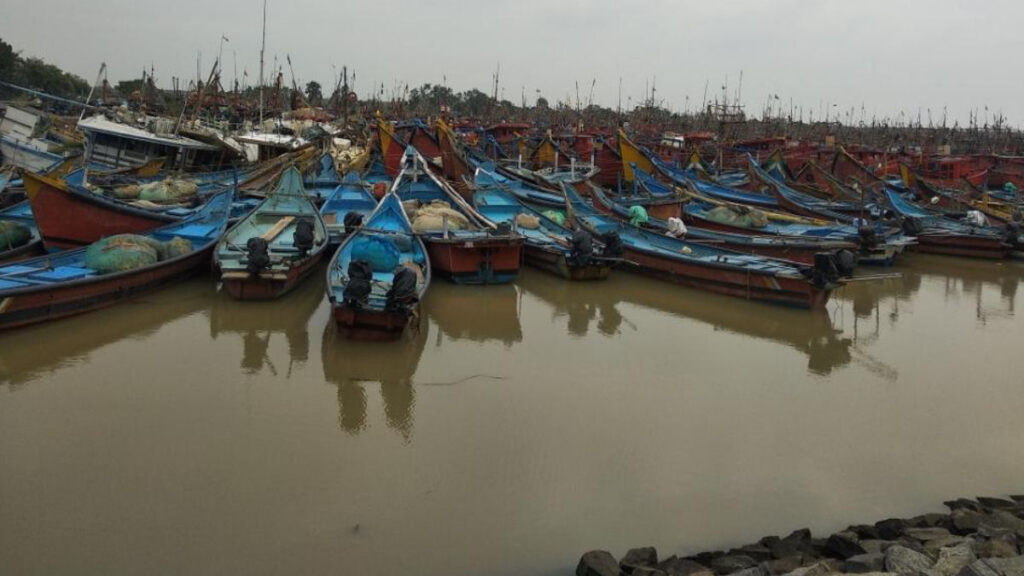Odisha Bans Deep Sea Fishing For Two Months
In India, fishing is a vital economic activity and a thriving sector of livelihood and sustenance. It is also one of the oldest occupations that has gained momentum post independence. Its unparalleled growth has led India on the forefront of global fish production, preceding China. It is a vital source of employment to most of the people in coastal regions. India is home to more than 10% of the global fish diversity which includes marine (coastal, offshore and deep sea) and inland (rivers, lakes, canals, reservoirs) fisheries.
Recognising that many marine resources are overfished and that the fishing capacity presently available jeopardises their conservation and judicious use, the Government imposes an annual ban on fishing as a precautionary approach for the long term sustainability of aquatic lives. To protect and facilitate fish breeding and wealth, the Odisha government announces a two-month ban every year on deep sea fishing. The ban is enforced from April 15 to June 15 by the State Fisheries Department which is the breeding season of marine fish. It is imposed on both mechanised vessels and fishermen. Sea fishing also stops from November 15 to June 15 every year because of the breeding season of sea turtles on the surface.
During the monsoon, the seabed gets disturbed due to the high force of a trawler. This in turn, hampers the breeding of fish as the force can throw the eggs up into the water from the seabed where they are buried, preventing them from hatching. An average trawler has an engine with 140 to 150 horsepower. As registered by the fisheries department, there are 21,832 fishing vessels, including 1,741 trawlers, in Odisha. During the ban period, all of these, including 630 trawlers of Paradeep fishing harbour, will not be allowed to venture out to sea. The ban extends to 12 nautical miles off the Odisha coast. Accordingly, the mechanised boats and traditional boats have been stationed safely on the shores and boatmen have been given holiday for two months preventing fishing activities.
“The fishermen have been educated about the need to conserve fish wealth by organising meetings with the marine fishermen to convince them against fishing during the breeding period. They have been duly instructed not to venture into the sea during the ban period to avoid disturbances. Traditional fishermen however have been exempted from the ban and are permitted to carry out fishing only in the territorial waters. Small, non–mechanised boats that are less than 8.5 metres long and use nets with big gaps, are exempted from the ban,” said Pabitra Behera, the Joint Director of Fisheries (Coastal) Department.

“However, there is leniency for traditional fishermen as they are permitted to catch pelagic fish which are generally the fish found in the upper surface or coasts of the sea. Most of the fishermen have welcomed the decision of the government and have declared it as a ‘fishing holiday’ during the breeding period. This has proven to be a great way to protect fish wealth,” added Behera.
The monsoon fishing ban was introduced in 1998 in Odisha to help the unhindered breeding of fish in the sea during the rains which is their peak breeding season of nearly 300 species of fish along the coast of Odisha. “The ban period is imposed under Section 4 of Odisha Marine Fishing Regulation Act, 1982 to protect fish wealth. The fishermen have been duly advised not to venture into the sea during the ban period. They will have to face strict action for violation of the order. The government will provide a provisional livelihood and nutritional support during the ban period to make up for the family of the fishermen. This way the fishermen cooperate and do not violate the embargo imposed,” informed Abhishek Tete, Assistant Fisheries Officer, Sundargarh.
“The fishing ban hinders our livelihood as fishing is our primary source of income. The government aid provided is not very large but sufficient enough to make ends meet. Focusing on the positive side, it surely gives us time to also cater to our boat-making occupation which stays on hold on other days. During this period, the age-old trade is revived and is all set to flourish,” said Krutagya Rao, a local fisherman of Sundargarh.
While this 60-day ban on hindering the marine ecosystem is a great way to conserve fish stocks, it is just temporary and not a permanent solution to the harm already caused. Stricter laws and regulations need to be in place to find an imperative and viable solution.

Author: Aafreen Firdaus
Aafreen is a doting mother to several kitties and a doggo who loves to pamper everyone with delicious food. She is a free spirit and a wizard of words and she loves to tell beautiful stories through her writing. She is also a loving and caring soul, always ready to pitch in with a helping hand and a smile on her face.
Read more from author


 copy.jpg)